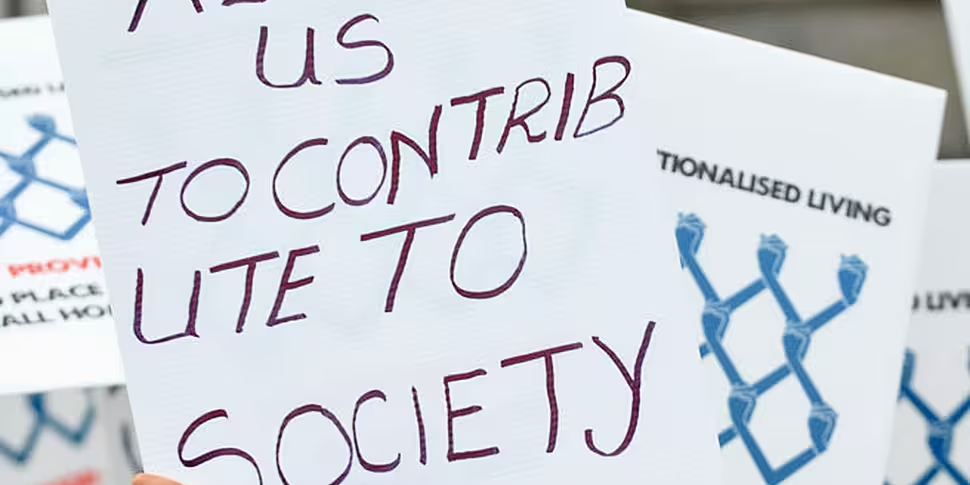The Minister for Justice has said that adults living in Direct Provision will soon be allowed to work in Ireland.
Minister Charlie Flanagan said the changes would be introduced in line with a recent Supreme Court which found that the law banning asylum seekers from working can be seen as unconstitutional.
The ruling found that - as there is no time limit on the asylum application process - the outright ban on working is “in principal” contrary to the constitutional right to seek employment.
Speaking in the Seanad this afternoon, Minister Flanagan said: “Adults who will soon have access to the labour market will also see their capacity for economic independence enhanced in line with the finding of the Supreme Court.”
Government task force
He said an inter-departmental task-force is “working hard examining the judgment's implications for State services across the Government.”
“I expect the task force to present its proposed solutions to the Government within weeks,” he said.
He refused to enter into speculation regarding exactly how the State would comply with the Supreme Court ruling – adding that the recommendations of the task force will be “carefully considered” by Government.
He noted that allowing Direct Provision residents to work could have positive repercussions for the system as a whole adding, “for example, if an applicant has economic security, the need to be dependent on the State will be somewhat alleviated.”
McMahon report
Since 2015, the Department of Justice has been working to act on the on the recommendations of a report compiled by Mr Justice Bryan McMahon to improve the Direct Provision system.
Minister Flanagan said the key recommendation underpinning the McMahon report was to tackle the length of time applicants spend in the system before a decision is made of their refugee status.
He said the International Protection Act 2015 which came into force on New Year’s Eve 2016 had ensured that there is now a single application procedure in place.
Single Application
Earlier this year, groups representing asylum seekers protested the new procedure, insisting the “complicated” new 60-page asylum application form had “created chaos” for thousands of applicants.
However Minister Flanagan said the system was “is the greatest reform to our protection process in more than 20 years.”
“It means that applicants will have all aspects of their claims, refugee status, subsidiary protection status and permissions to remain examined and determined in one process,” he said.
“Our intention is to provide first instance decisions in the shortest possible timeframe.”
Application time
He said that when the McMahon report was first published in 2015, 36% of asylum applicants spent three years or less in the system.
“This figure is now 72%, which represents a radical improvement,” he said “We continue to work hard to improve the situation further.”
“There is no room for complacency, and there will be no complacency."
He said the Department is working towards a situation where a decision will take no longer than nine months – which is the European standard.
According to the Reception and Integration Agency monthly report for August 2017 there are currently 4,807 people living in direct Provision in Ireland.
Approximately one quarter of those (1226) are under the age of 17 – while the vast majority of the children (1038) are under the age of 12.
In July, a government report investigating the experiences of children in Direct Provision described conditions in hotel and hostel accommodation as "overcrowded" and "dirty."
The children reported feeling "unsafe" and "intimidated" sharing facilities with older men.









